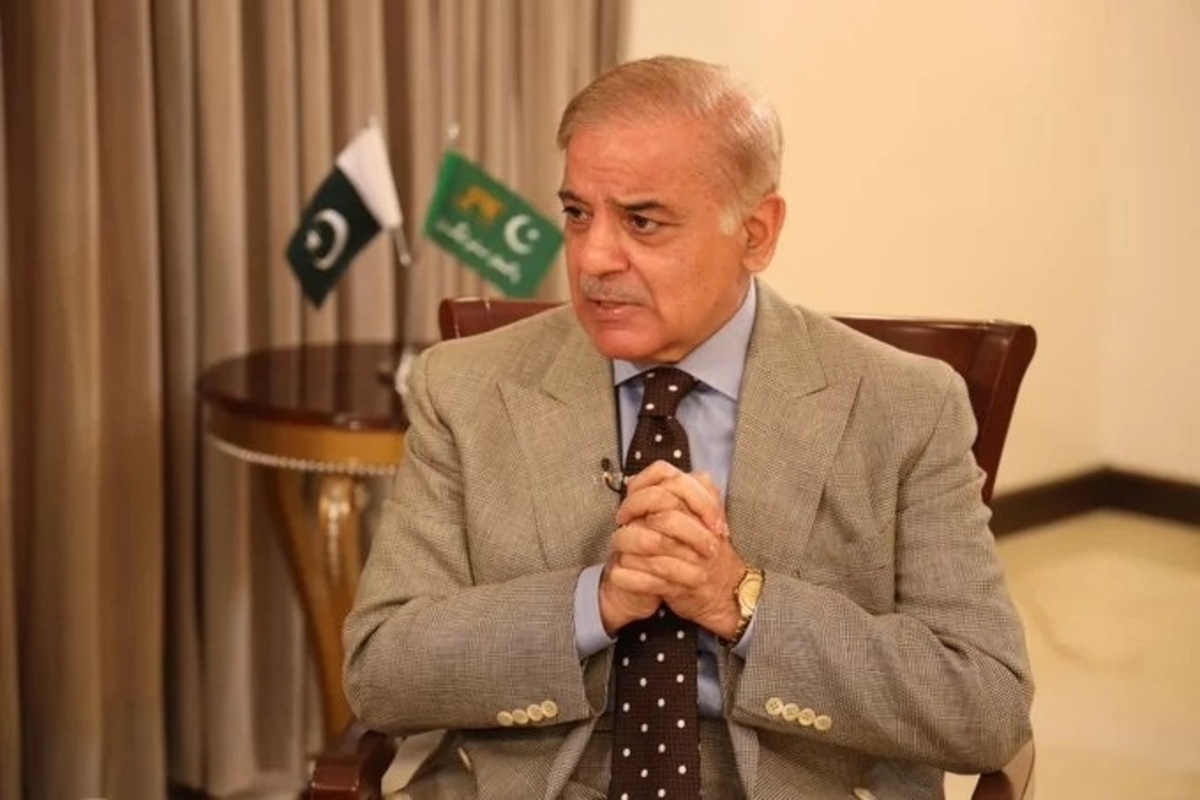After Pakistan Prime Minister Shehbaz Sharif in an interview with Dubai-based Al Arabiya TV said, “We have learnt our lesson, and we want to live in peace with India, provided we are able to resolve our genuine problems,” the Pakistan Prime Minister’s Office raked up the issue of Kashmir and called for the restoration of Art 370.
“Prime Minister has repeatedly stated on record that talks can only take place after India had reversed its illegal action of August 5, 2019; without India’s revocation of this step, negotiations are not possible.
Advertisement
The settlement of the Kashmir dispute must be in accordance with the UN resolutions & the aspirations of the people of Jammu & Kashmir,” read Pak PMO statement. The Spokesman said that the Prime Minister made this position very clear in his interview with the Al Arabiya news channel during his recent visit to the UAE.
“In reference to Prime Minister Shehbaz Sharif’s interview with Al Arabiya channel, the spokesman of the Prime Minister’s Office has said that the Prime Minister had consistently maintained that Pakistan and India must resolve their bilateral issues, especially the core issue of Jammu & Kashmir, through dialogue and peaceful means,” added the statement.
In 2019, on August 5, the Government of India revoked the special status granted under Article 370 of the Indian Constitution to Jammu and Kashmir through an amendment in Parliament and also scrapped Article 35 A, and the state was bifurcated into two union territories — Jammu and Kashmir and Ladakh.
Meanwhile, Sharif called for “serious and sincere talks” with Prime Minister Narendra Modi on “burning points like Kashmir.”
In an interview with Dubai-based Al Arabiya TV, Sharif said that Pakistan has learned its lesson after three wars with India and stressed that now it wants peace with its neighbour.
“My message to the Indian leadership and Prime Minister Modi is that let’s sit down on the table and have serious and sincere talks to resolve our burning points like Kashmir. It is up to us to live peacefully and make progress or quarrel with each other and waste time and resources,” Sharif said.
In an interview with Dubai-based Arabic news channel, Pakistan Prime Minister said, “We have had three wars with India, and they have only brought more misery, poverty, and unemployment to the people.”
Pakistan, which is battling a severe economic crisis, public discontent against the ruling regime due to flour crisis and fuel shortage among others is also faced with rising instances of terror attacks by the proscribed outfit Tehreek-e-Taliban Pakistan (TTP), which had ended a ceasefire with the country’s security forces late last year.
“India is our neighbour country, we are neighbours. Let’s be very blunt, even if we are not neighbours by choice we are there for ever and it is up to us for us to live peacefully and progress or quarrel with each other and waste time and resources. That is up to us,” Sharif said in the interview to Al Arabiya.
India in November last year had lashed out at Pakistan for raking up the issue of Kashmir during a United Nations debate terming it as “desperate attempts to peddle falsehoods”.
“As we meet today to discuss UNSC reforms, a representative of Pakistan has yet again made unwarranted references to Jammu and Kashmir. Jammu and Kashmir remains an integral and inalienable part of India irrespective of what Pakistan’s representative believes,” said Pratik Mathur, Permanent Mission of India to UN, in the right to reply during the United Nations General Assembly (UNGA) meet on UN Security Council.
“Pakistan’s desperate attempts to peddle falsehoods and a bad habit of abusing the sanctity of multilateral forums deserves collective contempt and perhaps sympathies as well,” he added.
Pakistan Foreign Affairs Minister Bilawal Bhutto Zardari had spoken about alleged human rights violations in Jammu and Kashmir. India’s response to Pakistan’s claims came during a key UN General Assembly meeting on the United Nations Security Council.











